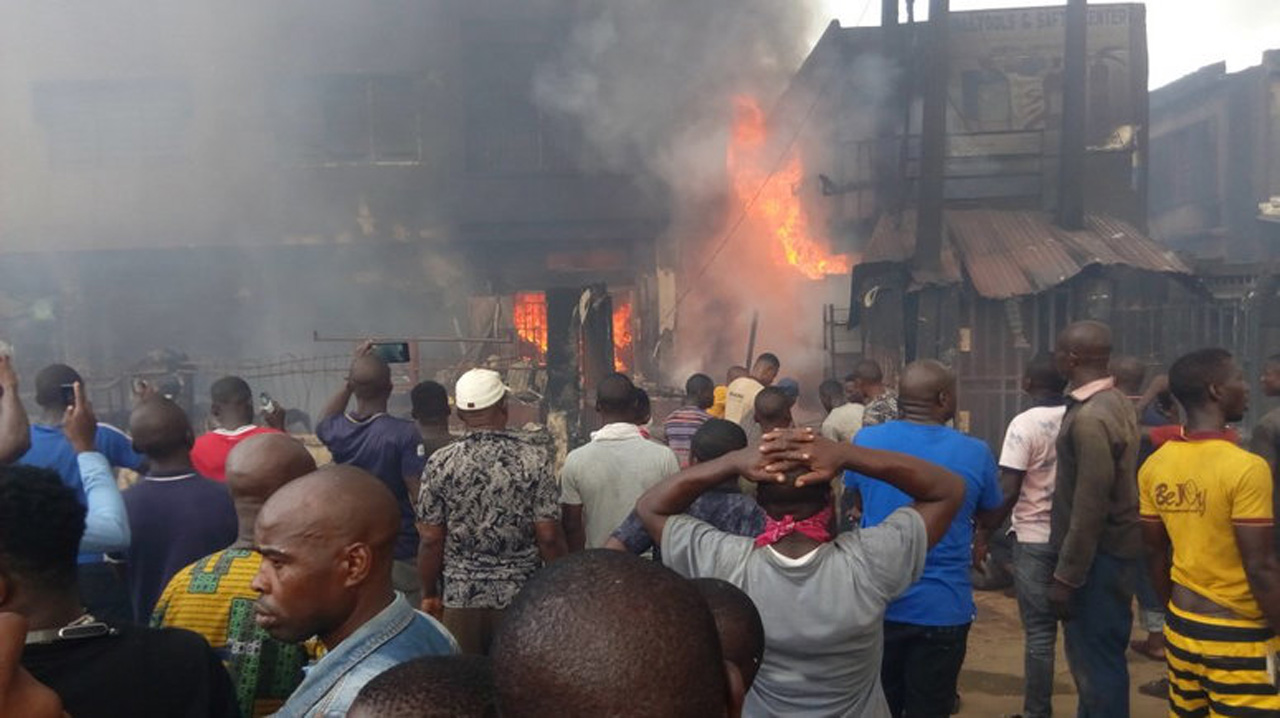
In recent times, cases of natural disaster in the form of flood and fire outbreaks have wreaked havoc across Nigeria. This has resulted in the loss of lives and damage to property worth millions of naira. The global effect of climate change, rapid urbanization and increased economic activities contribute to the frequent cases recorded across the country. Anambra is not spared the pang of these disasters some of which are man-made. Thankfully, the Gov. Willie Obiano administration has evolved proactive steps to contain the disasters and ameliorate the impact on affected communities.
In quick succession, the state recorded several cases of fire disaster in Onitsha, Nnewi, Agulu, Nteje and Okija from October 2019 to early 2020. This includes the inferno caused by fuel tanker accidents at different locations in Onitsha which claimed a number of lives and property estimated at huge costs. Last February, some family members lost their lives in an early morning inferno that engulfed their house at UgwuCheleku village, Okija in Ihiala local government area of the state.
Similarly, flood menace is a perennial occurrence in Anambra State and the battle against the disaster seems endless. During the rainy season, various communities, especially those around the lower River Niger, witness a series of flood disasters. Communities in these areas always battle with the high rising waters when it rains. At a time, heavy flooding submerged communities in Ogbaru, Anyamelum, Anam and other areas of the lower Niger River. But adequate measures have been put in place to contain such incidents.
The approach that has brought these devastating occurrences under control in Anambra was not achieved by accident and is recommended to the Federal Government and all the states in Nigeria plus the Federal Capital Territory of Abuja. At the state level is the Anambra State Emergency ManagementAgency (ASEMA) created to tackle disasters within the state. The agency has appropriate facilities and skilled personnel to deal with natural disasters at all times. Most important, it operates a decentralized system that offers the required flexibility. There are meant to be local government and zonal offices as well as cluster-based locations in highly susceptible areas for rapid response. Communication is effective. Aside from professional competence, ASEMA offices are manned by personnel familiar with the terrain.
They are trained to acquaint themselves with the environment and the locals who co-operate with them to ensure that obstacles to effective disaster management are identified and eliminated. Experts had been commissioned for research and monitoring of trends before equipping the facilities and training the personnel in different areas. Research findings, for instance, revealed that the incessant flooding in some areas are often blamed on poor management of the environment, poor building structures and felling of trees on flood plains. Sometimes, felling of trees on river plains, construction of structures on water ways constitute major impediments to the free flow of water, thereby causing siltation. This helps in efficient public finance management because equipment and training are tailored to specific areas.
These include the creation of project-specific community task force to deal with specific aspects of disaster in different environments. Aside from well-equipped ANSEMA, experts had recommended compulsory compliance policy formulation strategically enforced to compel the members of the public to comply with government’s directives on disaster prevention, management or assessment. Fire outbreak is a disaster that gives no prior sign. It does not follow any precision of certainty before it happens on the road, at homes, work places or other environment occupied by people. Instituting an effective fire-fighting culture and equipment will go a long way in ameliorating the incidents of fire outbreak. This became necessary following incessant fires across the state, especially induced by the harmattan season. There is deliberate inter-agency arrangement that make for timely intervention by key agencies like the Nigeria Police Force, Anambra State Fire Service, Anambra State Traffic Management Agency and Operation Clean and Health Anambra (OCHA) Brigade. A new condition of service and operational guidelines created by the state government has proven successful in effective and efficient fire-fighting.
The state government has re-organised the fire service to motivate the employees and strengthen their operational capability. Part of the new deal include the upward review of the firemen’s professional hazard allowance from ridiculously low rate of N10 a month to N10,000. Government appointed a highly respected military officer, Air Vice-Marshall Ben Chiobi, the managing director of the fire service. Late last year, government provided a number of new fire trucks and an additional 40 vehicles. It proposed an amended bill to the state Fire Service Law, to take the disaster-management agency away from the supervision of any ministry so as to accelerate its efficiency.
It is said that necessity is the mother of invention, and that special events necessitate special measures. However, the ability to achieve this goes beyond mere words. It demands creative approach to dealing with challenges of natural disaster frontally. This is what has played out in Anambra state. “Hitherto, if the agency wanted to make even regular purchases, it would have to seek permission from the permanent secretary in the supervising ministry who, in turn, would seek the approval of the commissioner and the commissioner would have to contact the Governor or Secretary to the State Government for approval.
All this bureaucratic redtapism impedes the efficiency of the organization which, perforce, should have an excellent response time.“Gov. Willie Obiano, has demonstrated sound leadership by identifying the loopholes in the system and tackling them accordingly. True leadership requires people to learn from experience and correct all errors and efficiencies, so that the system will not continue with them. We, therefore, urge all governments in Nigeria to learn from the Anambra State government how to effectively tackle fires, all the more so during this harmattan season”, said Anambra State Commissioner for Information and Public Enlightenment, C. Don Adinuba.
Egbuna, a developmental economist, wrote from Nnewi.






